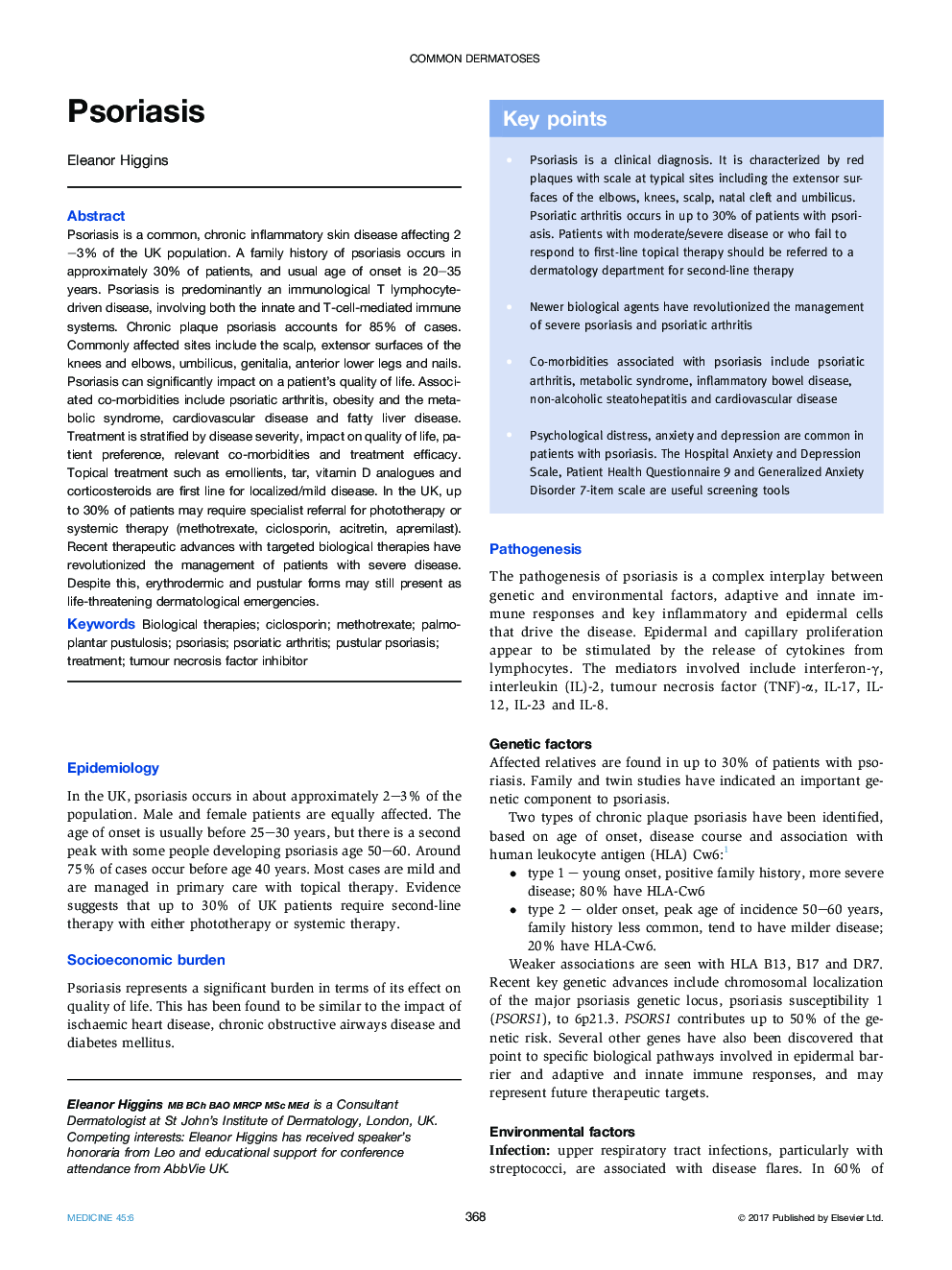| Article ID | Journal | Published Year | Pages | File Type |
|---|---|---|---|---|
| 5681203 | Medicine | 2017 | 11 Pages |
Psoriasis is a common, chronic inflammatory skin disease affecting 2-3% of the UK population. A family history of psoriasis occurs in approximately 30% of patients, and usual age of onset is 20-35 years. Psoriasis is predominantly an immunological T lymphocyte-driven disease, involving both the innate and T-cell-mediated immune systems. Chronic plaque psoriasis accounts for 85% of cases. Commonly affected sites include the scalp, extensor surfaces of the knees and elbows, umbilicus, genitalia, anterior lower legs and nails. Psoriasis can significantly impact on a patient's quality of life. Associated co-morbidities include psoriatic arthritis, obesity and the metabolic syndrome, cardiovascular disease and fatty liver disease. Treatment is stratified by disease severity, impact on quality of life, patient preference, relevant co-morbidities and treatment efficacy. Topical treatment such as emollients, tar, vitamin D analogues and corticosteroids are first line for localized/mild disease. In the UK, up to 30% of patients may require specialist referral for phototherapy or systemic therapy (methotrexate, ciclosporin, acitretin, apremilast). Recent therapeutic advances with targeted biological therapies have revolutionized the management of patients with severe disease. Despite this, erythrodermic and pustular forms may still present as life-threatening dermatological emergencies.
